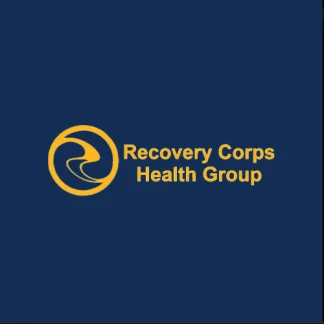Breathe Life Healing Centers
Breathe is dedicated to outstanding trauma-informed clinical care to each client...
Recovery Corps Health Group, located in Los Angeles, California, offers medical detox, residential alcohol and drug rehab, and a partial hospitalization program (PHP) for adults aged 18 to 64. Services include experiential therapy, dual-diagnosis treatment, a specialized program for LGBTQ+ individuals, and aftercare support.
Medical detox allows Recovery Corps clients to detox safely under the supervision of medical professionals who can treat withdrawal symptoms. Services also include counseling and treatment planning.
Once detox is complete, Recovery Corps offers residential treatment that includes individual, group, and family therapy, education on the impact of substance use, medication management, life-skills training, and relapse prevention. They also offer experiential options such as fitness training, yoga, music and art therapy, meditation, and nature walks.
Recovery Corps Health Group offers an outpatient clinic that provides six hours of treatment each day. The services offered are similar to residential treatment, including holistic options. When treatment ends, Recovery Corps offers aftercare that includes connections to community recovery groups and other relevant resources to help ensure a smooth transition back to daily life.
Recovery Corps Health Group accepts a variety of insurance plans, including Blue Cross Blue Shield, HealthNet, MHN, and ComPsych. Every insurance plan is unique, so be sure to verify out-of-network benefits and coverage information directly with your insurer.
Contact us for more information: (866) 483-1547

Connect with Recovery Corps Health Group by calling their admissions team directly.
(866) 483-1547 Website Get DirectionsThe Joint Commission, formerly known as JCAHO, is a nonprofit organization that accredits rehab organizations and programs. Founded in 1951, the Joint Commision's mission is to improve the quality of patient care and demonstrating the quality of patient care.
Joint Commission Accreditation: Yes
Experiential therapy is a form of therapy in which clients are encouraged to surface and work through subconscious issues by engaging in real-time experiences. Experiential therapy departs from traditional talk therapy by involving the body, and having clients engage in activities, movements, and physical and emotional expression. This can involve role-play or using props (which can include other people). Experiential therapy can help people process trauma, memories, and emotion quickly, deeply, and in a lasting fashion, leading to substantial and impactful healing.
Research clearly demonstrates that recovery is far more successful and sustainable when loved ones like family members participate in rehab and substance abuse treatment. Genetic factors may be at play when it comes to drug and alcohol addiction, as well as mental health issues. Family dynamics often play a critical role in addiction triggers, and if properly educated, family members can be a strong source of support when it comes to rehabilitation.
In individual therapy, a patient meets one-on-one with a trained psychologist or counselor. Therapy is a pivotal part of effective substance abuse treatment, as it often covers root causes of addiction, including challenges faced by the patient in their social, family, and work/school life.
Life skills trainings involve all the skills a person must have in order to function successfully in the world. These include time management, career guidance, money management, and effective communication. Truly successful addiction recovery is based on the ability to not only live substance-free, but to thrive. Life skills teaches the practical necessities of functioning in society, which sets clients up for success in life, and therefore sobriety.
Research clearly demonstrates that recovery is far more successful and sustainable when loved ones like family members participate in rehab and substance abuse treatment. Genetic factors may be at play when it comes to drug and alcohol addiction, as well as mental health issues. Family dynamics often play a critical role in addiction triggers, and if properly educated, family members can be a strong source of support when it comes to rehabilitation.
In individual therapy, a patient meets one-on-one with a trained psychologist or counselor. Therapy is a pivotal part of effective substance abuse treatment, as it often covers root causes of addiction, including challenges faced by the patient in their social, family, and work/school life.
Life skills trainings involve all the skills a person must have in order to function successfully in the world. These include time management, career guidance, money management, and effective communication. Truly successful addiction recovery is based on the ability to not only live substance-free, but to thrive. Life skills teaches the practical necessities of functioning in society, which sets clients up for success in life, and therefore sobriety.
In individual therapy, a patient meets one-on-one with a trained psychologist or counselor. Therapy is a pivotal part of effective substance abuse treatment, as it often covers root causes of addiction, including challenges faced by the patient in their social, family, and work/school life.
Life skills trainings involve all the skills a person must have in order to function successfully in the world. These include time management, career guidance, money management, and effective communication. Truly successful addiction recovery is based on the ability to not only live substance-free, but to thrive. Life skills teaches the practical necessities of functioning in society, which sets clients up for success in life, and therefore sobriety.
Life skills trainings involve all the skills a person must have in order to function successfully in the world. These include time management, career guidance, money management, and effective communication. Truly successful addiction recovery is based on the ability to not only live substance-free, but to thrive. Life skills teaches the practical necessities of functioning in society, which sets clients up for success in life, and therefore sobriety.
Breathe is dedicated to outstanding trauma-informed clinical care to each client...
Covenant House California offers housing programs and outpatient medical and men...
Atlantic Recovery Services Charter III is a private rehab located in Los Angeles...
Children’s Bureau - Magnolia Place Family Center, in Los Angeles, California, of...